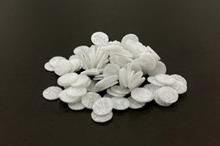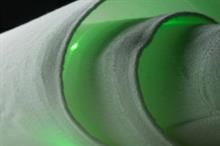
UPM Biochemicals and Central Saint Martins (CSM), University of the Arts London (UAL), are embarking on a design collaboration to demonstrate how multiple industries can make the urgent shift to renewable, circular materials in their products.
UPM Biochemicals is developing new, climate neutral materials produced from sustainably sourced hardwood that will replace fossil-based materials in multiple applications – from footwear and fashion to furniture and automotive.
A team of 50 product and industrial design students from Central Saint Martins are tackling a brief to use the materials in radical design solutions – to demonstrate that there are “no excuses” for industries not to shift their supply chains towards renewable circularity – to use less, source from renewable sources, and ensure the product can remain in the value chain after its useful life.
“We need to embrace radically new concepts and reconsider how brands can establish sustainability as a brand value and aim for true CO2-neutrality” said Martin Ledwon, vice president, stakeholder relations, UPM Biorefining & Technology. “They need to lead the transformation. But a net zero circular economy is only feasible if we work together across value chains. That is why we are prototyping a world beyond fossils with Central Saint Martins proving it’s possible and scalable to reduce supply chain emissions, now.”
The designs will be evaluated by a team of expert judges for their design quality, contribution to renewable circularity, commercial viability and their potential to disrupt conventional thinking in multiple industries.
“We want this project to demonstrate what can be achieved when the sustainable creativity of one of the world's finest design schools meets the creative sustainability of one of the world's leading producers of fossil-free renewables to explore and unlock the power of renewable circularity across the product design and manufacturing industry,” said Paul De’ATH, course leader, BA Product and Industrial Design, Central Saint Martins. “Design has the power to transform people, products or even enterprises. We believe through design and the right partnerships, we can help solve looming issues, and in doing so create a better world.”
UPM is operating a biorefinery for the production of advanced biofuels and renewable naphtha in Lappeenranta, Finland. The company is further investing 750 million Euros to build the world’s first industry scale biorefinery in Leuna, Germany, to convert sustainably sourced, certified hardwood into next generation biochemicals that will enable the vital shift away from fossil-based to renewable materials across a wide range of industries. The biorefinery aims to produce 220,000 tonnes annually in total, with start-up targeted to take place by the end of 2023. A potential investment in a second biorefinery for the production of advanced biofuels and renewable materials, located at the Port of Rotterdam in the Netherlands, is currently under investigation.
Fibre2Fashion News Desk (RR)

